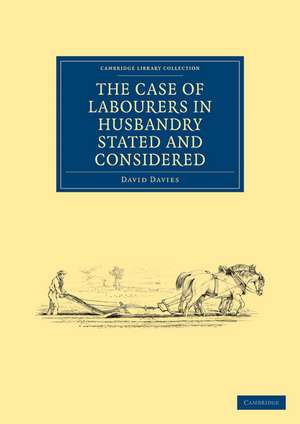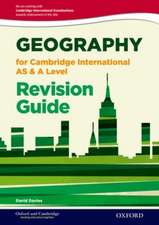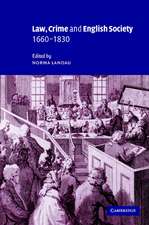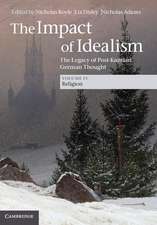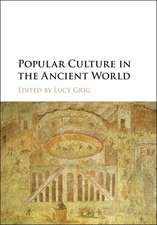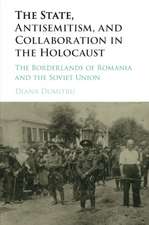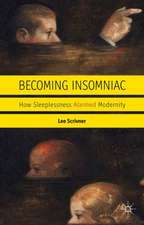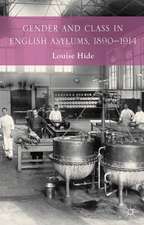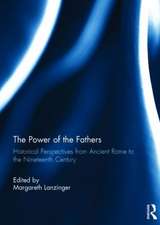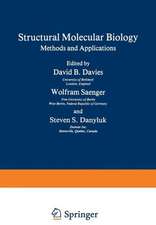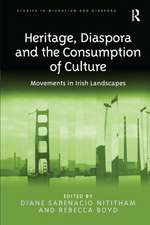The Case of Labourers in Husbandry Stated and Considered: Cambridge Library Collection - British & Irish History, 17th & 18th Centuries
Autor David Daviesen Limba Engleză Paperback – 22 dec 2010
Din seria Cambridge Library Collection - British & Irish History, 17th & 18th Centuries
-
 Preț: 282.46 lei
Preț: 282.46 lei - 23%
 Preț: 748.86 lei
Preț: 748.86 lei - 19%
 Preț: 435.87 lei
Preț: 435.87 lei -
 Preț: 465.98 lei
Preț: 465.98 lei -
 Preț: 370.01 lei
Preț: 370.01 lei -
 Preț: 329.98 lei
Preț: 329.98 lei -
 Preț: 509.42 lei
Preț: 509.42 lei -
 Preț: 368.10 lei
Preț: 368.10 lei -
 Preț: 472.37 lei
Preț: 472.37 lei -
 Preț: 445.91 lei
Preț: 445.91 lei -
 Preț: 332.07 lei
Preț: 332.07 lei -
 Preț: 370.82 lei
Preț: 370.82 lei -
 Preț: 473.66 lei
Preț: 473.66 lei -
 Preț: 374.72 lei
Preț: 374.72 lei -
 Preț: 468.48 lei
Preț: 468.48 lei -
 Preț: 278.04 lei
Preț: 278.04 lei -
 Preț: 532.56 lei
Preț: 532.56 lei -
 Preț: 330.93 lei
Preț: 330.93 lei -
 Preț: 367.33 lei
Preț: 367.33 lei -
 Preț: 503.81 lei
Preț: 503.81 lei -
 Preț: 240.12 lei
Preț: 240.12 lei -
 Preț: 370.82 lei
Preț: 370.82 lei -
 Preț: 220.45 lei
Preț: 220.45 lei -
 Preț: 522.17 lei
Preț: 522.17 lei -
 Preț: 370.43 lei
Preț: 370.43 lei
Preț: 335.77 lei
Nou
Puncte Express: 504
Preț estimativ în valută:
64.26€ • 69.77$ • 53.98£
64.26€ • 69.77$ • 53.98£
Carte tipărită la comandă
Livrare economică 22 aprilie-06 mai
Preluare comenzi: 021 569.72.76
Specificații
ISBN-13: 9781108024747
ISBN-10: 1108024742
Pagini: 212
Dimensiuni: 210 x 297 x 11 mm
Greutate: 0.52 kg
Editura: Cambridge University Press
Colecția Cambridge University Press
Seria Cambridge Library Collection - British & Irish History, 17th & 18th Centuries
Locul publicării:Cambridge, United Kingdom
ISBN-10: 1108024742
Pagini: 212
Dimensiuni: 210 x 297 x 11 mm
Greutate: 0.52 kg
Editura: Cambridge University Press
Colecția Cambridge University Press
Seria Cambridge Library Collection - British & Irish History, 17th & 18th Centuries
Locul publicării:Cambridge, United Kingdom
Cuprins
Dedication; Part I: 1. Introductory observations concerning the poor and the poor-laws; 2. An enquiry into the state of the poor, necessary, previous to a reform of the poor-laws; 3. Observations suggested by the foregoing accounts; 4. An apology for the poor; Part II: 1. A view of the progressive advance of the poor-rate; 2. Circumstances which have enhanced the prices of the necessaries of life, and by consequence increased the number of the poor, thereby doubly augmenting the rate; 3. Circumstances which have directly increased the number of the poor, and by consequence the amount of the rate; 4. Circumstances which have directly increased the rate itself; 5. Comparison of the prices of the necessaries of life about the middle of this century with the with their present prices; 6. Application of the contents of Sections II and III to account for the late augmentation of the poor-rate; 7. Sketch of the relative proportion between labour and the necessaries of life in different periods; Part III: 1. A reduction of the prices of certain necessary articles recommended, as soon as this shall be practicable; 2. Providing additional employment for men and boys in winter, that they may lose no time at that season; 3. Providing constant employment for women and girls, that they may be enabled to earn more than they commonly do; 4. Correcting the improvidence of the lower people, and encouraging frugality among them; 5. Rating the wages of labourers according to the statute 5 Eliz. c.4, or; 6. Regulating the price of day-labour by the price of bread; 7. Supplying the deficiency of the earnings of large families out of the poor-rate, &c.; 8. A supposed objection against the measure of raising wages answered. Conclusion; Appendix containing a collection of accounts, shewing the earnings and expences of labouring families in different parts of the kingdom.
Notă biografică
David Davies has been writing since he left home. His poems have appeared in diverse places, including Rise Up Review, Granfalloon, Green Lantern Press and The Other Side Of Hope. He is the recipient of a 2022 Colorado Book Award and has twice won the King Edward Prize for Youth Poetry.
Descriere
A detailed discussion of the living conditions and causes of poverty among contemporary agricultural labourers, first published in 1795.
